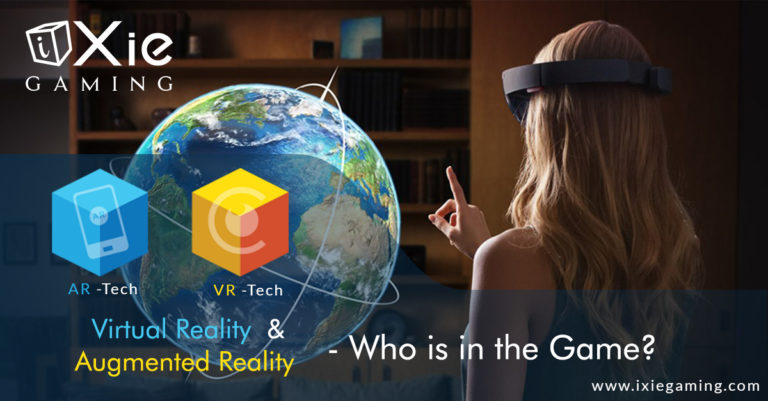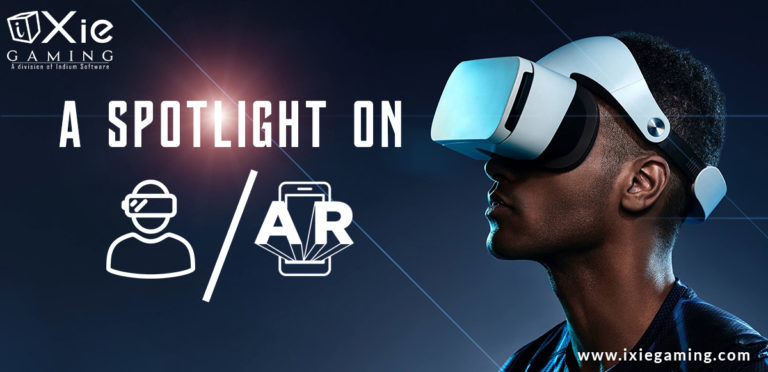Esports has taken the gaming world by storm in recent times. With lucrative tournaments and millions of fans globally, eSports gaming has become a flourishing sector that doesn’t show any signs of slowing down soon. According to Statista market forecasts, the eSports user base is expected to reach over 856 million by 2028. Behind this growing demand lies various technologies impacting eSports gaming.
In fact, technological advancements in eSports have been a key source of growth for the gaming sector. New technologies have seen the eSports industry become more and more competitive. But what are some of these technological advancements affecting eSports gaming? Let’s dive deeper into the details.
Understanding Technology Advancements in Esports Gaming
The gaming industry has witnessed significant technological improvements over the last few years. These technologies have contributed to the evolution of gaming from being just a hobby for some individuals to being one of the most treasured hobbies in the modern world. But how exactly has technological advancement contributed to this evolution? Well, it makes it easier for the public to play games. Also, technology makes the games even more enjoyable, attracting a broader audience.
The technology applied in eSports games is continuously evolving to enhance user experience, accessibility, and performance. Therefore, it allows fans and players to enjoy a better experience when watching or playing these games on computers or phones.

Top 6 Technology Advancements Affecting Esports Gaming
It’s no secret that technology is disrupting many industries, and eSports gaming is no exception. Here are some key technology advancements affecting eSports gaming:
1. Artificial Intelligence
Artificial intelligence (AI) is arguably one of the most impactful technologies, not only in the eSports gaming world but also across other industries. This revolutionary technology allows for eSports games to be played across different devices. As a result, it enables eSports fans to watch competitive play across any device or location.
AI technology is applied to different aspects of eSports games, including data science and player performance analytics. Also, it is used for data visualization and predictive modeling in eSports games.
2. Machine Learning
Machine learning (ML) is another technological advancement that has significantly impacted eSports gaming. This technology improves various aspects of eSports gaming, enhancing player and viewer experience. But how is ML being used in eSports gaming?
Well, machine learning is used for various purposes, such as game design analysis, player behavior analysis, optimization, and media streaming analytics, to mention a few. Therefore, it impacts how eSports gamers engage with the games.
3. Wearable Technology
Esports game development have often faced one challenge: the inability to keep team players connected, particularly when they’re not at the venue. However, this is no longer a problem, all thanks to wearable technology. Wearables provide an immersive gaming experience for players even when they’re not playing.
Esports teams are now turning to wearables to keep players engaged during tournaments, regardless of the gaming platforms they’re using. For instance, virtual reality (VR) headsets enable players to experience new worlds as they walk around their homes or even when they’re sitting at their PCs.
This technology has been used in many sports, such as cycling, baseball, and golf. However, eSports gamers tend to use it more often than other athletes due to their nature of work.
Read Also: The present and future of eSports
4. Cloud Gaming
Cloud gaming has risen in popularity in recent times. This growing popularity has been largely attributed to the increasing demand for high-quality sound and graphics. With cloud gaming, players can experience the game on their own terms while accessing all the resources needed to play.
For instance, a player can stream gameplay directly from their mobile device or computer without having a dedicated gaming console. This enables players to play with and against other players across the globe, regardless of their location.
What’s more, cloud gaming is helpful for those looking to enjoy their favorite eSports games and titles without breaking the bank or sacrificing performance or quality. With cloud gaming, gamers only need an active gaming device (e.g., a desktop computer or laptop) and a high-speed internet connection. Therefore, they don’t need to invest in gaming consoles, which are often expensive.
5. 5G
Cellular technology has grown tremendously in recent times, with 5G being the latest advancement. The 5G technology offers faster speeds than the 4G network, enabling more advanced gaming experiences than ever. For instance, 5G broadband allows gamers to enjoy faster speed, enabling them to upload and download eSports files faster than ever before. This implies that players can download new eSports updates quickly. Also, players will be able to enjoy higher-resolution video streaming, meaning better graphics quality when playing or watching games online.
What’s more, 5G has enabled faster connection between devices, enabling them to operate more efficiently. This technology has also allowed higher data transfer speeds, facilitating a seamless eSports gaming experience across platforms like YouTube Gaming and Twitch.
6. Streaming Technology
Streaming technology is another significant breakthrough in the world of eSports. This technology lets players broadcast gameplay on various video sites, including YouTube Gaming and Twitch. But how has this technology transformed the eSports gaming experience?
Well, the video sites where gamers broadcast their gameplay allow fans to watch live streams as the players compete in matches. So, viewers no longer have to go to the arena. This has enhanced convenience by making it easier for viewers to watch eSports games. Also, video game streaming platforms enable players from all over the world to engage directly with one another in real-time during events and tournaments like the League of Legends. As a result, this technology has led to increased player exposure and viewership numbers.

Final Thoughts
Technology advancements have revolutionized eSports gaming, promoting a better and more competitive gaming experience. From artificial intelligence and machine learning to cloud gaming, 5G, and wearables, technology has impacted how players and fans interact with eSports games. These new technologies have significantly impacted different aspects of eSports, including improving spectator experience and game quality. As we look forward, these technologies will mature, with new ones emerging. Therefore, we can look forward to a future where technology will become a key pillar of eSports success.
Ready to test your eSports game but struggling to find an ideal game development partner? iXie has got you covered. With over 15 years of experience, our team of experts can help you achieve your eSports game development needs. Contact us for more details.
Frequently Asked Questions:
Cloud gaming allows players to experience their favorite game on their own terms while accessing all the resources needed to play.
Video sites where gamers broadcast their gameplay allow fans to watch live streams as the players compete in matches. So, viewers no longer need to go to the arena. This has enhanced convenience by making it easier for viewers to watch eSports games. Also, video game streaming platforms enable players from all over the world to engage directly with one another in real-time during events and tournaments like the League of Legends. As a result, this technology has led to increased player exposure and viewership numbers.
Artificial intelligence (AI) is arguably one of the most impactful technologies, not only in the eSports gaming world but also across other industries. This revolutionary technology allows for eSports games to be played across different devices. As a result, it enables eSports fans to watch competitive play across any device or location. AI technology is applied to different aspects of eSports games, including data science and player performance analytics. Also, it is used for data visualization and predictive modeling in eSports games.
The 5G technology offers faster speeds than the 4G network, enabling more advanced gaming experiences than ever. For instance, 5G broadband allows gamers to enjoy faster speed, enabling them to upload and download eSports files faster than ever before. This implies that players can download new eSports updates quickly. Also, players will be able to enjoy higher-resolution video streaming, meaning better graphics quality when playing or watching games online.






